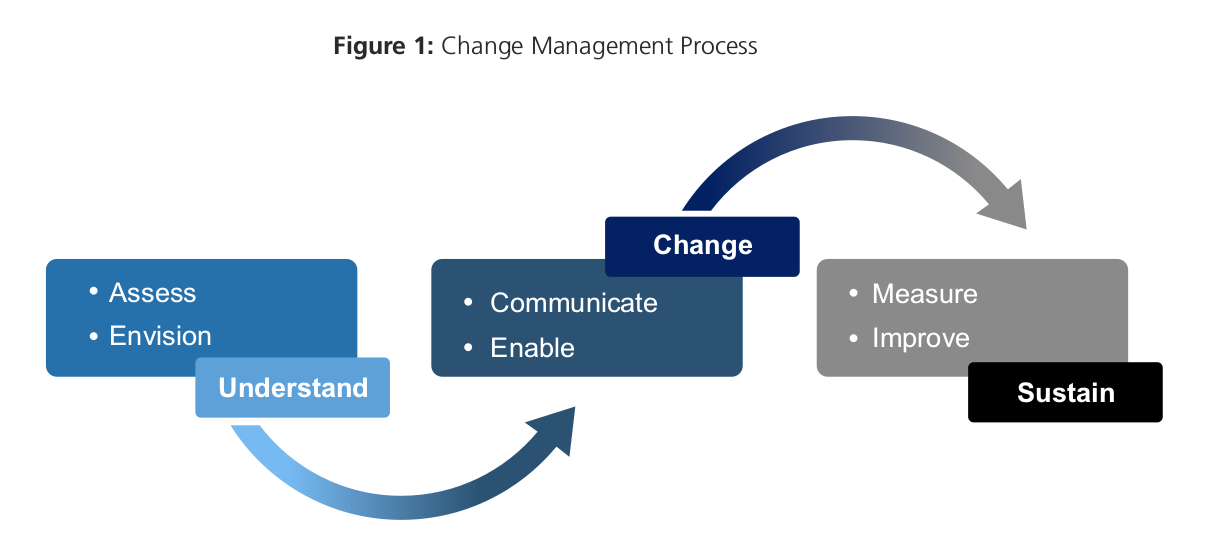Executive Summary
Several thought leaders and industry practitioners have written about, and discussed at length, the significance of instituting a change management process that requires implementing outsourcing solutions. The purpose of this white paper is to showcase the change management process, challenges and solution approach in a procurement outsourcing scenario.
The GEP experience reveals a clear disparity between individual and organizational goals, while implementing procurement outsourcing solutions. Benefits can be accrued only from a holistic change management solution, which strikes a balance between the two goals. Business cases rely on changes and, more often than not, they tend to underestimate the true potential of change management. This is significant for the organization, as well as the individual, and if not addressed proactively, it may lead to disruptions, resistance and, possibly, to project failure.
The procurement function creates value through improvement in effectiveness and efficiency. The key levers influencing value creation are spend under management, percentage of savings over the spend addressed, the alignment of procurement functions with business functions, robustness of risk management initiatives, procurement's operating costs, etc.
Procurement outsourcing positively impacts each of these value levers and brings realizable benefits to the organization. The changes involved in adding a procurement outsourcing partner can be multifarious and need to be handled with a meticulous change management initiative. The most frequent change agents include partnering seamlessly with the outsourcing team, processing realignment, adopting technology, signing up for stretched targets, and transforming existing processes.
To tackle these change agents, we propose a six-step framework that is integral to an effective change management program.


